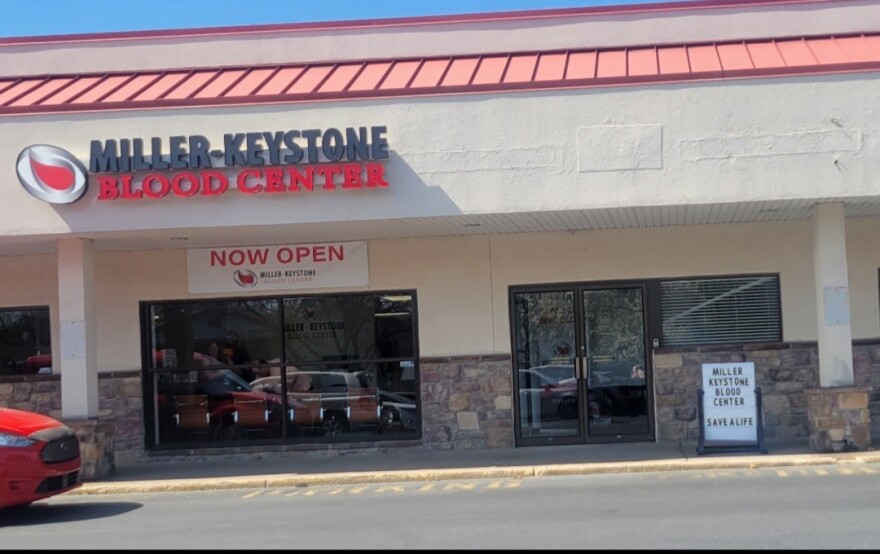BETHLEHEM, Pa. — The Miller-Keystone Blood Center has issued an urgent call for donors of all blood types, including platelet donors, as the community blood supply has reached critically low levels.
- Miller-Keystone Blood Center urgently needs donors of all blood types, including platelets
- With less than a one-day supply of blood products available, there is a risk of depleting the entire inventory in case of accidents or traumas
- Miller-Keystone can't import blood products from other centers because of a nationwide shortage
With less than a one-day supply of blood products currently available, the blood center warns that an accident or trauma could deplete their entire inventory, jeopardizing the treatment of patients in 35 regional hospitals.
Blood center spokeswoman Marie Clemens, said there's an immediate need for blood donations.
"Our hospitals rely on blood products every day to care for accident and burn victims, cancer patients, premature infants, surgical patients and many others within our community," Clemens said in a news release. "We urge all eligible donors to take an hour out of their day, roll up their sleeves and help save lives by donating their life-saving blood."
Chief Operating Officer Rami Nemeh said the ideal target is maintaining a three-day supply of blood products for community hospitals, equivalent to approximately 1,200 units of blood. However, Miller-Keystone only had 411 available units on its shelves as of Thursday.
Unlike previous years, he said, the option of importing blood products from other centers across the nation isn't feasible because blood supplies nationwide are at historic, critical lows. Miller-Keystone supplies the Lehigh Valley and several counties in eastern Pennsylvania and western New Jersey.
Nemeh said the community blood supply has yet to recover to pre-pandemic inventory levels.
The pandemic resulted in a decline in blood donations due to school and business closures, remote work and the inability to host on-site blood drives, officials have said. Although businesses and schools have resumed in-person operations, many are still unable to host bloodmobile drives, which exacerbates the shortage.
The expected decline during the summer months due to school breaks, vacations and increased travel hasn't helped.
Clemens said the perishable nature of blood requires a steady stream of volunteer blood donors. She notes that revised eligibility criteria for travel have expanded the pool of potential donors, allowing many previously deferred individuals to become eligible.
"Our hospitals rely on blood products every day to care for accident and burn victims, cancer patients, premature infants, surgical patients and many others within our community."Marie Clemens, Corporate Director of Communications at MKBC
To donate blood, individuals must be 16 or older, weigh at least 110 pounds and be in good health. They must not have donated blood within the past eight weeks (except for platelet donors, who are eligible within eight days of a previous donation).
Valid identification is required for all donors. To schedule a blood donation, interested individuals can call 800-B-A-DONOR (223-6667) or visit the center's website to review eligibility criteria and schedule an appointment online.
Red Cross' call for blood donation
In addition to Miller-Keystone, the American Red Cross of Greater Pennsylvania was also asking people to consider donating blood over the Fourth of July holiday.
"There's people in the hospital right now and patients who are still counting on our donations, they're not off taking vacations, they still need to get their blood transfusions and get that treatment," said Nicole Roschella, regional communications manager of the Red Cross of Greater PA.


